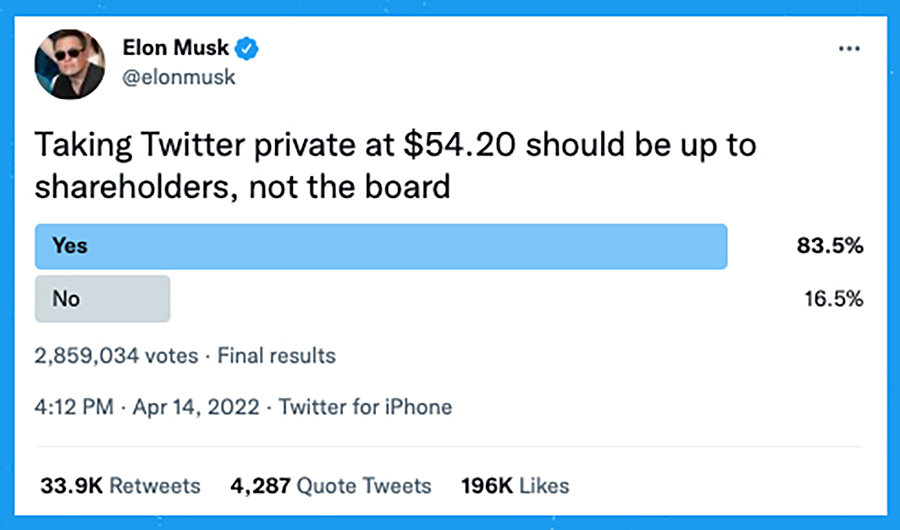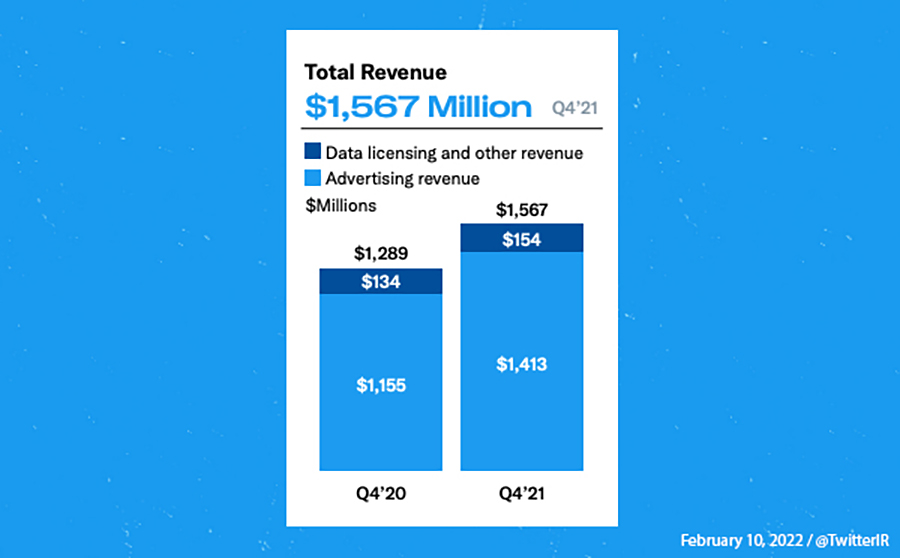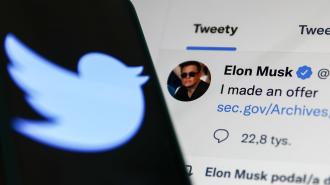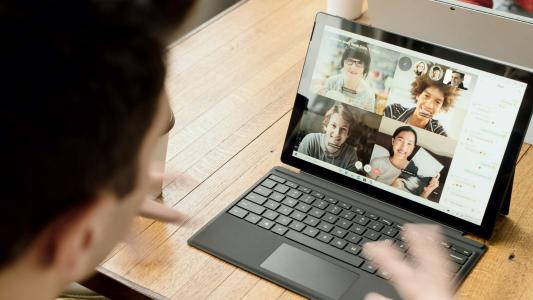This article is an installment of Future Explored, a weekly guide to world-changing technology. You can get stories like this one straight to your inbox every Thursday morning by subscribing here.
Update, 4/25/22, 3:10 p.m. ET: Elon Musk has purchased Twitter for $44 billion.
“The Twitter board conducted a thoughtful and comprehensive process to assess Elon’s proposal with a deliberate focus on value, certainty, and financing,” Bret Taylor, Twitter’s chairman, said in a statement. “The proposed transaction will deliver a substantial cash premium, and we believe it is the best path forward for Twitter’s stockholders.”
“Free speech is the bedrock of a functioning democracy, and Twitter is the digital town square where matters vital to the future of humanity are debated,” Musk said. “I also want to make Twitter better than ever by enhancing the product with new features, making the algorithms open source to increase trust, defeating the spam bots, and authenticating all humans. Twitter has tremendous potential — I look forward to working with the company and the community of users to unlock it.”
Billionaire Elon Musk wants to buy Twitter.
In January, the CEO of SpaceX and Tesla started buying shares in the social media platform. By April 4, he was the company’s biggest shareholder, with a 9% stake.
After accepting and then turning down a seat on Twitter’s board of directors (a position that would limit the number of shares he could own in the company), Musk made an offer to buy Twitter outright, at a valuation of $43 billion, on April 14.
As of April 19, the company’s board was still evaluating the bid, and planning ways to prevent it.
So, what would a Twitter owned by Elon Musk look like — and how might it affect the world?
An open-source algorithm
The status quo: The Twitter timeline has two display modes: Latest and Home.
When your timeline is set to Latest mode, you see tweets from people you follow in reverse chronological order (newest to oldest). In Home mode, the tweets you see and the order they appear is determined by algorithms.
“An algorithmic Home timeline displays a stream of Tweets from accounts you have chosen to follow on Twitter, as well as recommendations of other content we think you might be interested in based on accounts you interact with frequently, Tweets you engage with, and more,” Twitter wrote in a 2021 blog post.
“Having a black box algorithm promote some things and not other things, I think this can be quite dangerous.”
Elon Musk
The change: During an April 14 interview with Chris Anderson, the head of TED, Musk said that Twitter should “open source the algorithm,” publishing the code online so that users can see exactly why certain tweets are appearing on their feeds.
He also said that any manual adjustments to the algorithm by Twitter to emphasize or de-emphasize tweets should be public knowledge.
“[H]aving it be unclear who’s making what changes to where, having tweets mysteriously be promoted and demoted with no insight into what’s going on, having a black box algorithm promote some things and not other things, I think this can be quite dangerous,” Musk told Anderson.
“In those circumstances, Twitter had better make sure their algorithms are fair, as it would surely be held accountable if they weren’t.”
Ariel Procaccia
The potential impact: Given the large number of people who use Twitter, the company’s ability to control which tweets people see does mean it has some control over the global conversation — if it wants a certain topic to get attention, it could emphasize it — and vice versa.
This could have major consequences. If Twitter decided it wanted Russia to win its “special military operation” in Ukraine, for example, the company could potentially help by deemphasizing tweets reporting on the war or calling for donations to Ukraine.
It’s not clear if “open-sourcing the algorithm” would be able to stop any manipulation, though.
For one thing, the algorithm doesn’t seem to exist — as an anonymous Twitter technologist recently told Fortune, Twitter relies on “a web of interconnected systems that work together to show tweets to each user.”

This system is so complicated that even experts may have trouble understanding why one tweet would be promoted over another, so open sourcing parts of the code may not directly improve the layperson’s understanding of their Twitter feed.
“Open sourcing something by definition means you can see the code, but it doesn’t mean you can understand the policies or influence the policies that lead to that code,” Vladimir Filkov, a computer science professor at UC Davis, told CNN.
Presumably, some people would be able to understand this code, though, and they could sound the alarm if Twitter starts manipulating it in unexpected ways. Transparency could actually encourage the company to make their algorithms less complex and more comprehensible to avoid that perception.
“In those circumstances, the company had better make sure their algorithms are fair, as it would surely be held accountable if they weren’t,” Ariel Procaccia, a computer science professor at Harvard University, told CNN. “I believe this would be a net positive for users.”
Less content moderation
The status quo: Like other major social media networks, Twitter has rules about what users can and cannot post. Some of its content policies are based on laws (e.g., no child pornography), while others aren’t (e.g., no spreading misinformation).
A user’s punishment for breaking content rules can range from having their offending tweet deleted to being permanently banned from the platform.
“Twitter has become kind of the de facto town square.”
Elon Musk
The change: Musk thinks Twitter should limit its content moderation to removing only whatever speech isn’t allowed by law.
“Twitter has become kind of the de facto town square, so it’s just really important that people have both the reality and the perception that they are able to speak freely within the bounds of the law,” he said.
If a tweet falls into a legal gray area, Musk thinks the default decision should be to leave it on the platform.
“If in doubt, let it exist,” he said. “In a case where there’s perhaps a lot of controversy, you would perhaps not want to promote that tweet…I do think that we want to be very reluctant to delete things and be very cautious with permanent bans. Timeouts are better.”
“A platform that allows people to spam misogynist and racist abuse … would lose advertisers, corporate partners, and sponsors rapidly.”
Imran Ahmed
The potential impact: There are social media platforms that take this hands-off approach to content moderation (one of them, Gab, has even reached out to Musk in recent days, asking him to invest in it instead of Twitter).
We can look to these sites to see what sorts of users an (almost) anything goes content moderation policy attracts — and there’s a lot of conspiracy theorists, anti-semites, and far-right extremists.
One objection to letting members of these groups say whatever they want on your platform is that it doesn’t always stay online — hate speech on social media has been linked to an increase in violence against minorities.

As Musk observed, Twitter’s massive size means it has the power to shape the global conversation, and some argue that the company has a social responsibility to try to limit speech that could lead to violence.
While that’s debatable, the fact that Twitter is a business isn’t — and allowing the kind of content posted on other “free speech” social media platforms could have negative impacts on the size of its user base and on its business model, which gets 90% of its revenue from advertising.
“A platform that allows people to spam misogynist and racist abuse is unsafe for pretty much anyone else and would lose advertisers, corporate partners, and sponsors rapidly, leaving it a commercially unviable husk within months,” Imran Ahmed, founding CEO of the nonprofit group Center for Countering Digital Hate, argued to the Washington Post.
Musk did once tweet that he would eliminate Twitter ads in favor of a subscription model, but it’s not clear that would bring in nearly as much revenue, and it seems even he had second thoughts about the idea — the tweet has been deleted.
The best of the rest
While open sourcing the algorithm and minimizing content moderation are the two big changes Musk says he would make to Twitter, they aren’t the only ones:
Adding an edit button: On April 4, Musk posted a poll asking if Twitter users thought the platform should add an Edit button (presumably, allowing people to edit posts after they’re published), and 73% voted “yes.”
Musk told Anderson he would add an Edit button if he owned Twitter, but it seems the platform is getting one either way — on April 5, it announced plans to start experimenting with an Edit button it had been developing “since last year.”
“If I had a Dogecoin for every crypto scam I saw, I would have a hundred billion Dogecoin.”
Elon Musk
Getting rid of spam: Musk appears to be as sick of Twitter spam as the rest of us.
“A top priority I would have is eliminating the spam and scam bots and the bot armies that are on Twitter … They make the product much worse,” Musk said during his TED interview. “If I had a Dogecoin for every crypto scam I saw, I would have a hundred billion Dogecoin.”
Spam and scams are already against Twitter’s policies, and Musk didn’t elaborate on exactly how he would get rid of the annoying tweets — especially since that means more content moderation, not less.
Stop paying the board: If Musk gains control over Twitter, the platform will instantly save about $3 million — because he plans to cut the salaries for its board of directors down to $0.
Musk’s tweet announcing the salary cuts came soon after the board adopted a shareholder rights plan — colloquially known as a “poison pill defense” — that makes it harder for someone (Musk) to take over the company without the board’s approval.
If Musk’s tweet is meant to be a threat of sorts to the current board members, it’s not much of one — one of the first things he’d likely do if he did take over Twitter is replace the existing board, chosen by current shareholders, with one of his choosing, so they’d be losing their salaries regardless.
“I’m not sure that I will actually be able to acquire it.”
Elon Musk
The bottom line
Twitter’s board is expected to turn down Musk’s offer. He could still attempt a hostile takeover of the company (one that doesn’t have the support of the board), but the poison pill defense complicates that process.
Even before the poison pill was adopted, Musk questioned his ability to buy Twitter, telling Anderson he wasn’t sure he would “actually be able to acquire it.”
He also said he had a “plan B” in place if the Twitter board rejected his offer. He declined to elaborate on the plan, so we don’t know yet whether he’s talking about a different approach to acquiring the company or perhaps launching a competing platform.
Either way, the first people to hear about it will likely be Musk’s Twitter followers.
We’d love to hear from you! If you have a comment about this article or if you have a tip for a future Freethink story, please email us at [email protected].






